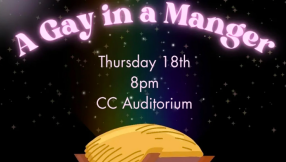
A university in Colorado has reversed its decision to remove religious references from the graduation speech of a nursing student who has been chosen to address her classmates at their pinning ceremony.
Officials at Colorado Mesa University (CMU) had initially told Karissa Erickson to remove references to God, Jesus Christ and the Bible from her speech, but the school reversed course after they received a letter from the Alliance Defending Freedom (ADF), a nonprofit focusing on religious liberty cases.
The Daily Sentinel reported that the CMU nursing faculty asked Erickson to remove the religious references "because someone might be offended."
Erickson's speech reportedly included the Bible verse John 16:33, which she says comforted her during times of adversity. In the passage, Jesus warns followers about tribulation, but tells them to "take courage" because He has already "overcome the world."
The ADF letter, dated May 4, noted that the request to remove the religious references came after the school drew complaints from the Freedom From Religion Foundation (FFRF) in 2015 over the distribution of Gideon Bibles at the pinning ceremony.
ADF attorney Travis Barham contended that CMU's censorship of Erickson's speech violated the U.S. Constitution.
"It is ... well established that university officials cannot silence speech simply because it expresses a particular viewpoint, including a religious one," Barham wrote.
"The Supreme Court has held on at least three separate occasions that 'speech discussing otherwise permissible subjects cannot be excluded from a limited public forum on the ground that the subject is discussed from a religious viewpoint,'" he went on to say.
The request said that there was a threat of "repercussions" if Erickson went ahead with the speech without removing the religious references.
The university reportedly withdrew the request four days after it received the ADF's letter. CMU spokeswoman Dana Nunn explained that the faculty "made a mistake" when they requested the removal of the religious references.
"It was a well-intentioned misunderstanding of what was appropriate," Nunn said, as reported by The Daily Sentinel. "I think it's fair to say that a lot of people have their own interpretations of the separation of church and state, and the faculty member that initially asked for the change was just trying to do the right thing, she was just not correct legally".
Nunn further stressed that the university does not prohibit students from talking about their faith.
Barham commended CMU for its swift action on the issue. He stressed that it is common for universities to encounter disputes about the First Amendment rights of students, particularly in graduation speeches.
He noted that universities often believe they are "fulfilling the commands of the First Amendment" when barring religious speech, but he argued that "they're actually violating it."













